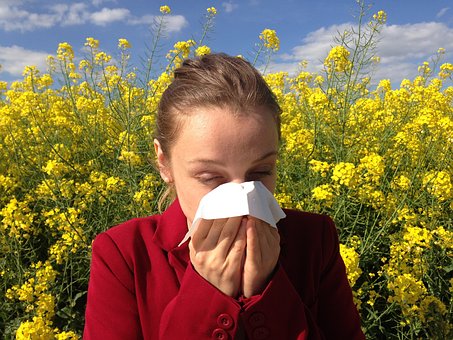When the body shows signs of allergy, it means that the immune system reacted to any substance that has entered or contacted by the body, which is commonly harmless to most people. These substances are called allergens. They are evaluated by the immune system as harmful and try to get rid of it. Allergens may vary from person-to-person. You can find it in food, environment, drinks, and other places.

Explanation Of Allergy
An allergic reaction will not immediately take place in a scenario when a person comes in contact with an allergen. The immune system will start to become sensitive to the allergen as time goes until it overreacts to this substance. The immune system will start to create antibodies to attack the allergen once it recognizes and remembers this substance which is a process called sensitization.
What Causes It
The antibody immunoglobin is the cause of allergic reactions. This antibody is released to fight foreign and potentially harmful substances that get inside the body. It particularly destroys the allergen, which causes a chemical production that activates the allergic reaction. Histamine is one of the chemicals that induce the activation of the allergic reaction, which can trigger muscle tightening in blood vessel walls and airways. It can also induce the production of more mucus in the nasal lining.
Symptoms
Symptoms vary from the type of allergen that causes the reaction, which can be internal, external or both. It may become visible on the skin, nasal passages, airways, and the digestive system. The symptoms can range from mild to severe and sometimes life-threatening in rare cases.
Here is an index of symptoms from different kinds of Allergy.
Atopic Dermatitis: Eczema will appear in this allergic reaction, which can cause the skin to peel, flake, itch and redden. It gives a lot of body discomfort but it is not life-threatening.
Food Allergy: It can cause hives, swelling of the face, throat, and tongue, and may give a tingling sensation in the mouth. Severe cases may cause anaphylaxis.
Medicine Allergy: It can cause an itchy sensation on the skin, rashes, wheezing, facial swelling, and anaphylaxis if the reaction is severe.
Allergy Due To Insect Sting: The area that is stung can induce edema. Hives can appear over the body with chest tightening, coughing, wheezing and breathing problems such as anaphylaxis.
Hay Fever: It is also known as allergic rhinitis. It is popular due to the continuous sneezing symptom as an allergic reaction. Itching of the nose, eyes and the roof of the mouth are also some common symptoms. The eyes may become swollen, red and watery in conjunction with a runny nose.

It is essential to know the type of allergic reaction you have to relieve the symptoms and prevent future breakouts. Identify what causes symptoms to appear and what worsens the condition. Avoid these variables that may cause a trigger for the allergy. Inform your friends and family members if you have any severe case of an allergic reaction in case of a life-threatening breakout.
